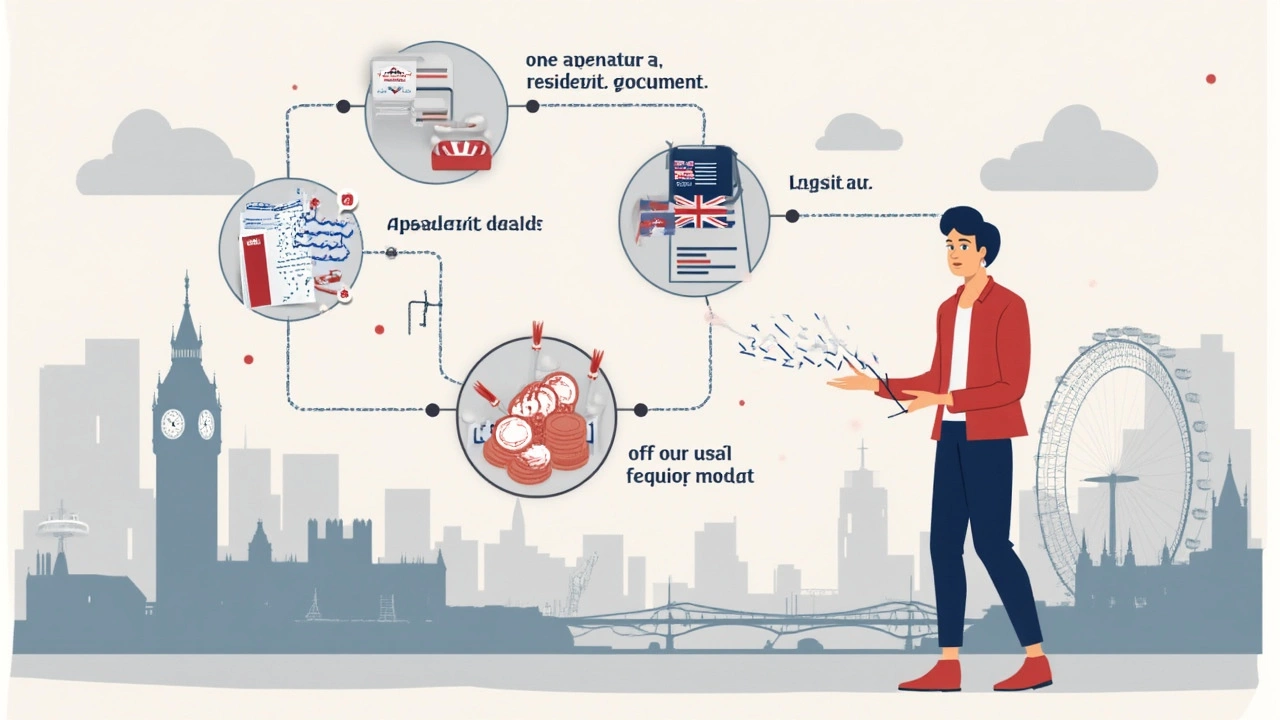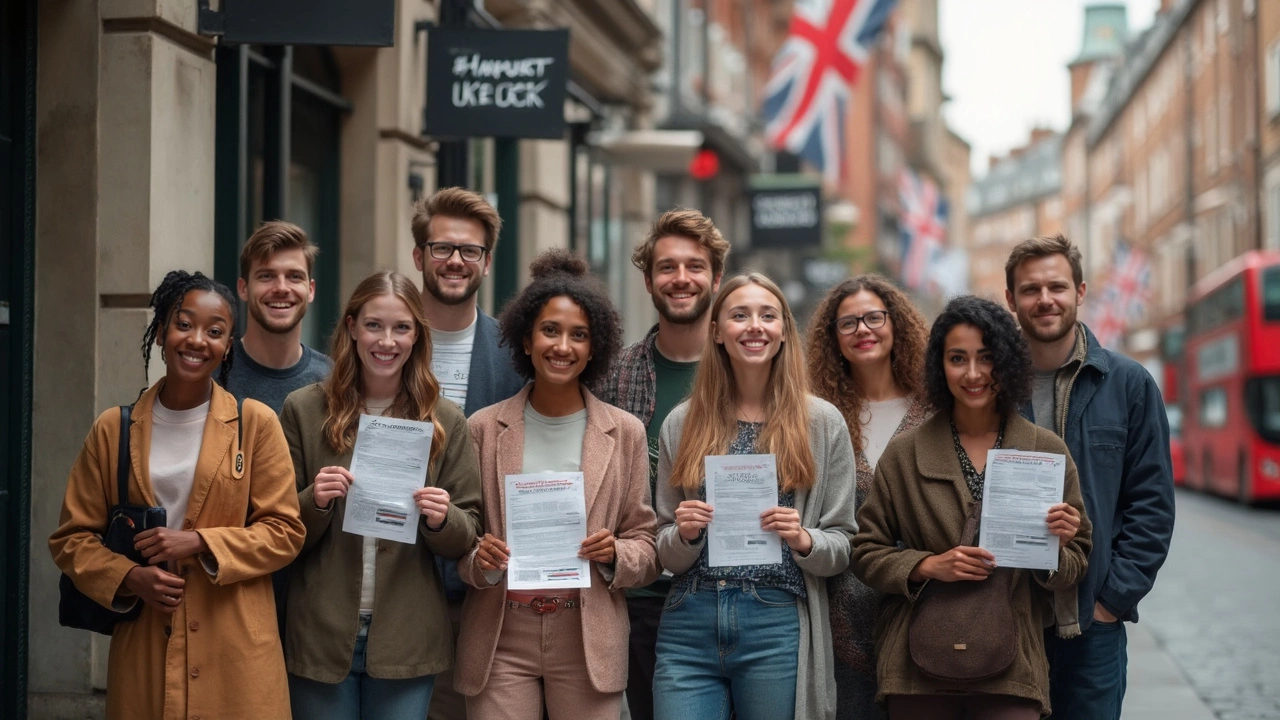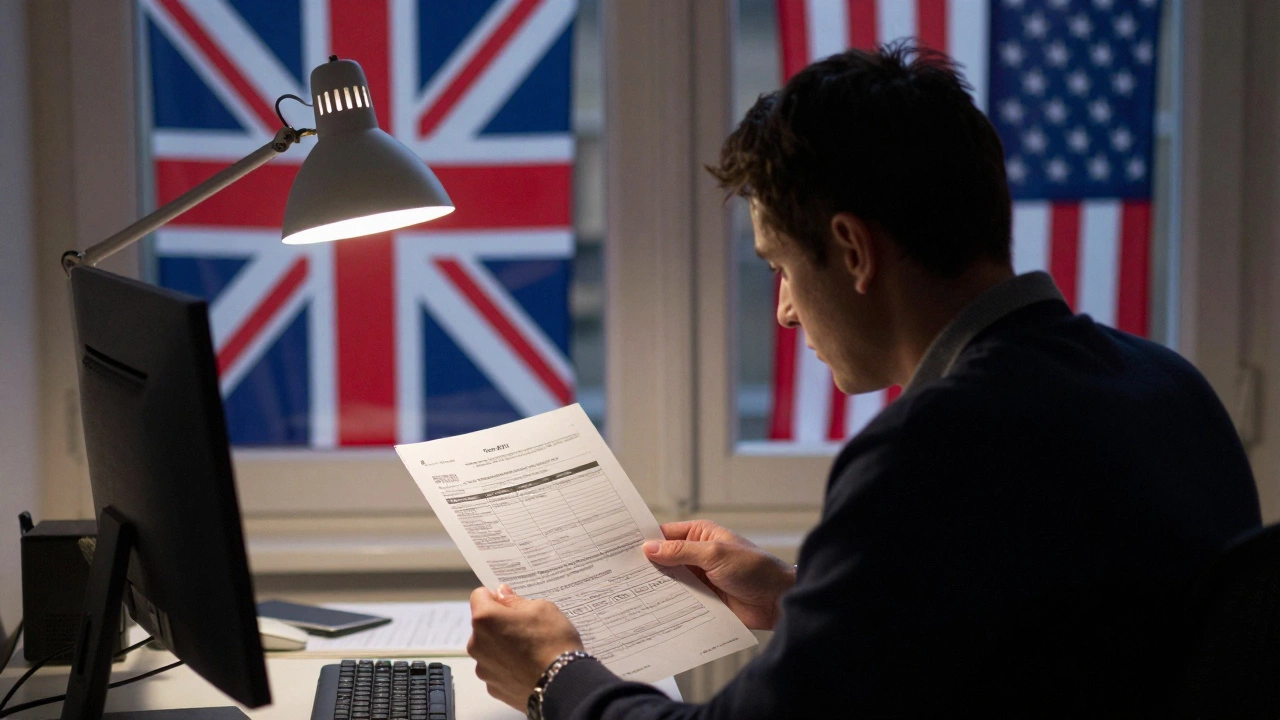If you're thinking about opening an ISA but you don't have a UK passport, don't sweat it just yet. It's not about the citizenship—it's about where you live. The rules for ISAs (Individual Savings Accounts) come down to UK residency, not your nationality.
Even if you’ve just arrived or you’re working here on a visa, you might still qualify. It’s all about your current address and tax residency status rather than the colour of your passport. Trust me, you don’t need a royal pedigree—just proof that you call the UK home.
Why does this matter? ISAs are one of the easiest ways to keep your savings away from the taxman. But if you don’t tick the right residency boxes, banks will turn you away without a second glance. So before you walk into your local branch or hop online, it’s smart to know the checklist and paperwork.
Let’s get straight to what actually matters. Who can open an ISA, what proof you’ll need, and how things change if you ever decide to move away. No nonsense, just practical answers.
- Who Can Open an ISA?
- The Importance of UK Residency
- Documents and Proof You’ll Need
- If You Move Abroad
- Smart Tips for Non-Citizens
Who Can Open an ISA?
This bit trips up a lot of people. To open an ISA, you don’t need to be a UK citizen, but you do have to be what's called a UK resident for tax purposes. That just means you usually live here and pay your taxes here, even if you weren’t born in the UK, don’t have a British passport, or just landed last year.
To get more specific, here’s who can open an ISA in 2025:
- You’re at least 16 if you want a Cash ISA, or 18 for a Stocks and Shares, Innovative Finance, or Lifetime ISA.
- You’re a current UK resident. If you live and work in England, Scotland, Wales, or Northern Ireland, you’re sorted. If you’re just visiting, on a tourist visa, or splitting your time between countries, you need to check the tax residency rules.
- You’re a Crown servant (like in the armed forces or diplomatic service) or their spouse or civil partner—even if you’re posted abroad, you can still open and keep an ISA.
British citizenship does not matter. I’ve met folks from Poland, India, Spain—if they're living and paying taxes here, they can open an ISA the same as anyone born in London.
What doesn’t work? If your main address and tax home are not in the UK, you’re out of luck. There are special cases for juniors: parents or guardians can open Junior ISAs for kids under 18, but again, the child needs to live in the UK most of the time.
If you’re moving here for work, studying at uni, or just got yourself a Home Office visa, check your paperwork and bank statements to prove you really are settled in the UK. Banks and providers will want to see this before letting you open an account.
The Importance of UK Residency
Here’s where most people trip up. You can be from anywhere—France, India, Canada, you name it—but what really counts for an ISA is where you actually live. The UK government doesn’t care about your passport as much as your residency status for tax purposes when it comes to opening an ISA.
You’re eligible if you’re a UK resident for tax reasons, which basically means you spend most of your time here and pay your taxes to HMRC. A student from abroad on a long course? You’re in. Working here on a skilled visa? Also good. But if you’re just passing through or on a short holiday, you’re out of luck.
To put it in simple terms, HMRC (that’s the UK tax office) has set rules about who qualifies as a UK resident. Most banks follow this strictly—no UK residency, no ISA. Even the official government site is clear:
"You must be resident in the UK to open an Individual Savings Account (ISA)." – GOV.UK
Don’t get confused by the whole settled status, indefinite leave to remain, or being a full citizen. You just need to prove you live and pay tax here. Here’s a quick breakdown of who usually qualifies:
- Any adult (16 or over for cash ISAs; 18 or over for stocks and shares ISAs) currently living in the UK
- People working abroad for the UK government (this is the rare exception if you’re officially posted overseas)
- Students or workers with the right visa and proof of UK address
Just for context, let’s see how common this is. Check out how many non-UK nationals live in the UK and might want to open an ISA:
| Year | Non-UK Born Residents (Millions) |
|---|---|
| 2022 | 10.6 |
| 2023 | 11.1 |
There are literally millions of people in your situation. As long as you’ve got the right proof of living in the UK and you’re paying tax here, you’re pretty much ticking all the ISA boxes.

Documents and Proof You’ll Need
So let’s get real—banks won’t just take your word for it when you say you live in the UK. To open an ISA, you’ve got to pull together a few bits of paperwork. It’s basically the same stuff you’d need to open any serious account, but these ones are non-negotiable.
Here’s what you’re almost always going to need:
- Proof of identity: Think passport, national ID card, or sometimes your biometric residence permit. If you’ve got a UK driving licence, that usually works too.
- Proof of address: A recent utility bill, council tax letter, or bank statement showing your UK address. It usually needs to be less than 3 months old.
- Proof of your right to reside: If you’re not a UK citizen, this could be your visa, settled status, or even your share code from the Home Office. Banks and providers love official paperwork.
If you just landed in the country and don’t have utility bills in your name yet, some banks will accept a letter from your employer or a tenancy agreement. But this varies a lot, so always check with your provider first—they all play by slightly different rules. And by the way, some online-only banks can be fussier, so go old-school if you hit a wall.
Wondering what most people show up with? Here’s a quick look at what’s most commonly accepted:
| Document Type | Examples | How Often Accepted |
|---|---|---|
| Proof of Identity | Passport, UK driving licence, BRP | Nearly always |
| Proof of Address | Utility bill, bank statement, council tax bill | Very common |
| Immigration Status | Visa, Settled status, Home Office letter | Essential for non-citizens |
| Alternative Proofs | Employer letter, tenancy agreement | Case-by-case |
Don’t forget—names and addresses have to match exactly. If there’s a typo or old address, your application can hit a snag fast. Double-check everything. And if you’re asked for certified copies, just take the originals to your local bank branch. They’ll usually copy and stamp them on the spot.
If You Move Abroad
Moving outside the UK? This is where the rules on ISAs get strict. As soon as you stop living in the UK, you can't pay new money into your ISA account anymore. Your account won't close, but you lose the power to top it up for as long as you're not a UK resident. There are a couple of exceptions (if you work for the UK government overseas, for example), but most people won't fall into those.
HMRC spells it out clearly:
“You cannot put money into an ISA after the tax year in which you stop being a UK resident.” — HM Revenue & Customs
But there’s some good news. Any cash you’ve already put in your ISA before you moved abroad? That stays tax-free in the UK. The account keeps growing—interest, dividends, all of that—just like it did when you lived here.
Here’s how it usually plays out:
- You move abroad halfway through a tax year. You can pay into your ISA until April 5 of that year, but after that, you’re done until you return to the UK and become a resident again.
- If you come back and become a UK resident again later, you can start using your ISA allowance in the next tax year—no need to open a new account.
| Scenario | Can You Pay Into ISA? |
|---|---|
| Still UK Resident | Yes |
| Moved Abroad (not gov. employee) | No |
| Moved Abroad (gov. employee) | Yes |
| Return to UK | Yes, in new tax year |
One last thing—if you plan on moving abroad, talk to your ISA provider before you leave. Some providers get jumpy when customers change their address to outside the UK, and they could even close your account if you don’t give them a heads-up. Sort out your details, keep your paperwork safe, and make sure you still get the statements you need, even if you're sunbathing somewhere far from the English drizzle.
So if you’re someone who travels a lot for work or you might move overseas for a while, knowing these ISA rules can save you a headache. Stay sharp and don’t let your ISA benefits slip away just because you crossed a border.

Smart Tips for Non-Citizens
So you’re not a UK citizen but want to make the most of savings through an ISA. Not a problem—as long as you tick the right boxes. Here’s what works, what doesn’t, and where people usually trip up.
First, check that your visa or residency status qualifies you. The UK says you need to be a UK resident for tax, not just a short-term visitor. If you’re a student or working here on a sponsored visa, that usually counts as long as you're considered resident for tax purposes. But tourists and those on visitor visas—sorry, no go.
When opening an account, banks will ask for proof. This usually means:
- Proof of address in the UK (council tax bill, utility bill, tenancy agreement, or an official letter)
- Valid photo ID (passport, national ID card, or a biometric residence permit)
- Proof of employment or study, in some cases (letter from employer or university)
Don’t forget: if your documents come from abroad, banks may ask for certified translations, which can take extra time. Always check the bank’s website for their exact list. Some are pickier than others.
Watch out if you travel—a lot. If you spend an extended time away from the UK and stop being a UK tax resident, you’ll need to stop paying into your ISA. Your account won’t close, but you can’t keep topping it up until you’re resident again. The current rule says you can only subscribe to an ISA each tax year if you satisfy the tax residency requirement for that year.
| Status | ISA Allowed? | What You Need |
|---|---|---|
| UK Resident (Tax) | Yes | Proof of address, ID |
| Student Visa (Tax resident) | Yes | Proof of study, address, ID |
| Tourist/Visitor | No | Not eligible |
| Moved Abroad (Not tax resident) | No (can’t pay in) | Can keep ISA, but can’t add more |
A handy tip: if you’re switching jobs, flats, or studying, keep all your official docs tidy. Banks love paperwork. Also, some providers are quicker than others with non-citizen applications. If your current bank is dragging its feet, don’t be afraid to shop around. Online-only banks and building societies sometimes have simpler processes and less strict lists.
One more thing—always check ISA contribution limits for the tax year. Right now, in 2025, it’s £20,000 per adult each year. Don’t bust that limit, because HMRC will make you sort out the mess, and it’s not fun. If you’re sending money from abroad, watch out for foreign exchange fees or foreign income rules. If you’re stashing big money, speak to a tax adviser who gets expat and non-citizen rules.
Bottom line: being a non-citizen isn’t a brick wall—just have the right paperwork, stay on top of your UK residency status, and pick a bank that understands your situation. You’ll be set up, saving tax, and probably ahead of a few Brits who haven’t even sorted their own ISAs.








